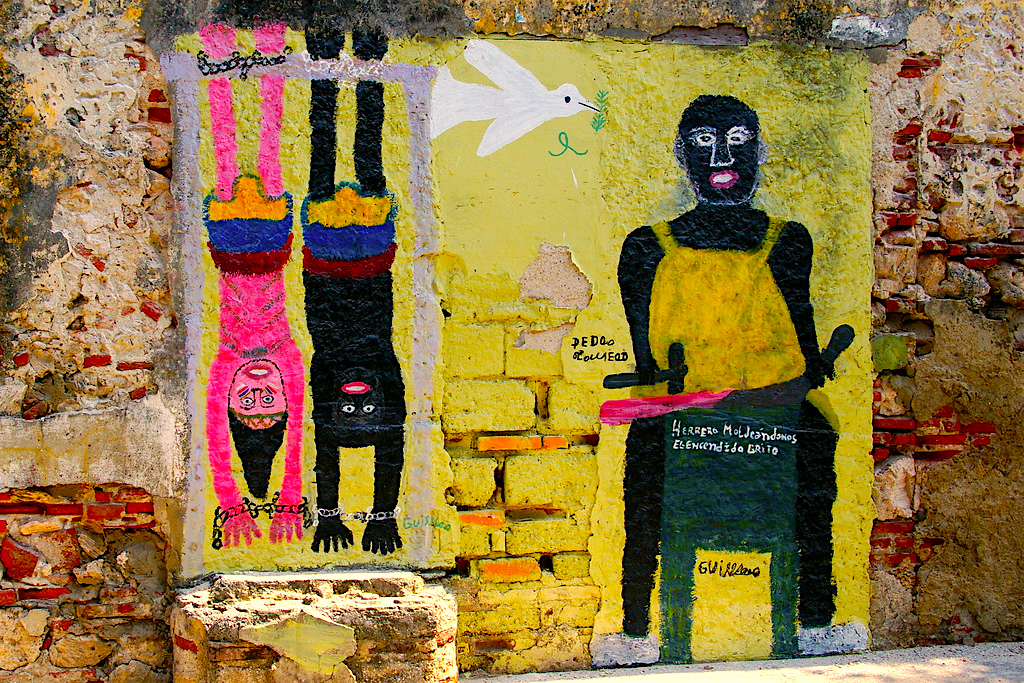Universities Should Take a Stand Against Voluntourism

Because college admissions committees look for evidence of an applicant’s ability to do more than get good grades and high test-scores, high-schoolers look for ways to showcase their wide-ranging interests. And since these interests are generally conveyed by a commitment to community service, one popular option has been to volunteer abroad. Known as voluntourism, it allows students to put a lot of service hours into a relatively short period of time with the added bonus of getting to travel and experience a foreign country.
While there is no concrete data on the percentage of U.S. high-school students who volunteer abroad, StudyAbroad.com has a directory featuring dozens of different companies that cater to this demographic. One of the leaders in the teen voluntourism space is Projects Abroad, which offers opportunities to help rebuild earthquake-damaged communities in Nepal, work with orphaned children in Argentina, and preserve wildlife refuges in Kenya, among other projects.
Yet there is evidence that volunteering abroad without an understanding of a host community’s needs and challenges, as well as spending money on airfare versus direct giving, can do more harm than good. According to an Al Jazeera report on orphanage voluntourism in Cambodia, tour groups arrive for short visits without having undergone background checks or any sort of relevant training. Nor are they able to communicate in the local language. Their presence exposes the children to potential physical danger from predators, and psychological damage from repeatedly forming new and fleeting relationships with strangers. In 2015, UNICEF reported that nearly three hundred Nepalese children who were intercepted from being trafficked were illegally placed in orphanages, where thousands of children have been housed to attract fee-paying voluntourists.
Further, as CGR blogger Jared Kushner points out in the New York Times, voluntourists often take jobs away from locals. He describes watching visitors who spent thousands of dollars to fly to Haiti to do work that bricklayers in the area could have done in far less time. “Imagine how many classrooms might have been built,” he writes, “if they had donated that money rather than spending it to fly down themselves. Perhaps those Haitian masons could have found weeks of employment with a decent wage. Instead, at least for several days, they were out of a job.”
These examples point to problems at every level of the voluntourism industry, from program operators to the organizations they partner with and the tourists who pay to work with them as well. And while it is perhaps unfair to paint an entire industry in a uniformly negative light, the fact is that there is no regulatory body to hold bad or ineffective actors accountable, or to direct consumers to organizations that are doing things right.
That said, it is hardly fair to place the burden squarely on high-schoolers to do the due diligence necessary to ensure that their voluntourism trips actually benefit the communities they purport to serve, especially not when their reasons for volunteering in the first place largely owe to the (legitimate and understandable) desire to stand out when applying to college. It is therefore worth asking what responsibilities colleges and universities have about the encouragement and promotion of voluntourism.
We ought to be clear that there is no concrete data to suggest a direct connection between voluntourism and college acceptance rates. In fact, admissions committees seem to have a healthy amount of skepticism of it. An article in the Washington Post quoted several admissions officers around the country who emphasized the importance of students’ “passion” and “commitment” to service over the destination itself. The Daily Beast spoke with other officers who made similar points. “Just having gone is not enough,” said one admissions officer from the University of Texas at Austin. “That they took the opportunity given to them and made something of it, and how they tell us about it, is important.” But this hardly encourages students to consider the problems that can arise from their participation in voluntourism. Instead, it only seems to encourage high-school students to brand their voluntourism experiences in a certain way that conveys some deeper truths.
Rather than being discouraged from voluntourism, applicants are finding it to be a crucial part of their high-school experiences. For example, the international wing of Peking University High School in China (whose students are preparing to attend college in the U.S.) organized a trip for students to volunteer in Botswana. The intense competition to get into prestigious schools has made these kinds of trips commonplace in China. According to a Harvard graduate who has interviewed prospective students in Beijing, “if one student said she went to Africa to volunteer, a thousand other students will soon have the exact same thing on their resumes as well.” One wealthy applicant from northeastern China even flew in a private plane to Tibet for a day to make a video of him volunteering in a poor community.
The same logic seems to be at work even after a student has a college acceptance in hand. There are voluntourism programs that help college students get service-learning, independent-study, and internship credits for completing short-term summer programs in Jamaica and elsewhere. There is ample career advice on the web touting the value of voluntourism. An article in Metro emphasized how “an English-teaching tour of a Lusophone township, or a horticultural project in the drought-stricken Sahel can be a boost not just to your psyche but your resume.”

Photo courtesy of Feed My Starving Children - Haiti, Flickr.
Even Science, Technology, Engineering, and Math (or STEM) fields promote the value of voluntourism. In an article titled “Voluntourism will boost your career,” an engineering professional encouraged job-seekers to gain global exposure through volunteering abroad. As she put it, “voluntourism provides a global perspective that will allow us to engineer for the global population, not just the wealthiest nations, creating simple, affordable technologies that can be applied in any culture/context. With all this, who wouldn't hire you?”
It’s no coincidence, then, that most voluntourists are between the ages of 20 and 25, according to data from the Tourism, Research, and Marketing (TRAM) consulting group. They are college students, recent graduates, and young people just starting out in their careers. In fact, the voluntourism industry actively courts this demographic, with sites like Volunteer Forever making promises about how volunteering abroad “helps your resume, school applications, and job interviews.”
In other words, there is still a widespread rewards system in place for voluntourists, or at least a perception of a rewards system. Until those rewards and perceptions go away, neither will the problems associated with voluntourism.
Perhaps it is impractical to argue that colleges, universities, and employers put an end to rewarding voluntourism. It might even be unreasonable. After all, in an increasingly global world, there is tremendous value to having language skills, cross-cultural competencies, and a healthy appreciation for what makes us all so different. The problem is that voluntourism programs are generally too short and too superficial to instill those skills.
Furthermore, voluntourism programs have helped to cement a deeply troubling notion among young people – our future global leaders – which is that the developed world provides places for learning, while the developing world only provides stages for service and aid-giving. Students study abroad in England and France. They visit museums and landmarks and generally take in culture and history. Meanwhile, they merely volunteer in Cambodia and Haiti. Treating countries in the developing world as if they’re devoid of agency, history, and culture deeply affects international relations, diplomacy, and development discourse.
For example, in a 2015 article in the American Political Science Review, Andy Baker argued that depictions of Africa in Western media have resulted in a “racial paternalism” among whites in the US, who view Africans as “lacking in human agency.” Similarly, Americas Quarterly editor-in-chief Brian Winter writes of the “paternalism, disdain, and arrogance” that Washington has shown Latin America in the past several decades. Winter advises the next U.S. president to acknowledge the political stability and growing middle classes in the region, and to begin treating Latin America as an equal to the U.S., rather than its proverbial backyard.
Rather than building on and strengthening these kinds of paternalistic attitudes, we must do all that we can to leave them in the past. Colleges and universities are in a unique position to lead the way. They can encourage applicants and students to prioritize researching and studying the developing world – the Fulbright Program provides a model of cultural exchange that merits replication at all learning levels – with the goal of fostering meaningful international engagement. By rewarding them, they reward a way of thinking that will immeasurably benefit the U.S. and the rest of the world.
Tamara J. Walker is an assistant professor of history at the University of Pennsylvania.

